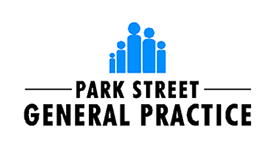Shingles, also known as herpes zoster, is a viral infection caused by the varicella-zoster virus—the same virus that causes chickenpox.
While it can affect people of all ages, it is more common and often more severe in older individuals and those with weakened immune systems.
Here we explore the symptoms of shingles, how to identify it, and ways to manage this painful condition.
Understanding Shingles
Shingles occurs when the varicella-zoster virus, which may have been dormant in your nerve tissues after a previous chickenpox infection, becomes reactivated. This reactivation can happen due to various factors, including ageing and a weakened immune system.
Common Symptoms of Shingles
- Pain and Burning Sensation: Shingles typically starts with pain, burning, or tingling in a specific area of the body. This is often one of the first signs.
- Rash: Within a few days of the initial discomfort, a red, painful rash with fluid-filled blisters appears. This rash usually follows a specific nerve pathway.
- Flu-Like Symptoms: Some individuals may experience flu-like symptoms such as fever, chills, fatigue, and headache.
- Itching and Sensitivity: The rash can be intensely itchy and sensitive to touch.
- Blisters and Scabbing: The blisters can break open, ooze, and eventually form scabs. This process can take several weeks.
After the rash clears, some individuals may experience persistent pain in the affected area. This condition is called postherpetic neuralgia and can last for months or even years.
Identifying Shingles
Shingles can usually be diagnosed by a doctor based on the characteristic rash and symptoms.
Managing Shingles
There are several ways to manage the condition and alleviate symptoms:
- Antiviral Medications: Starting antiviral medications within 72 hours of the rash’s appearance can help reduce the severity and duration of the illness.
- Pain Relief: Over-the-counter pain relievers and prescription medications can help manage the pain and discomfort associated with shingles.
- Topical Treatments: Calamine lotion and other topical treatments can soothe itching and help dry out the blisters.
- Rest: Getting plenty of rest is essential to support the body’s immune response.
- Keep the Rash Clean: Keeping the rash clean and dry can prevent infection.
Shingrix® Vaccine
The Shingrix® vaccine is a highly effective preventive measure against shingles for people over the age of 50 and adults who are at increased risk of shingles.
It is a non-live vaccine that stimulates the immune system to provide strong, long-lasting protection (around 10 years) against the reactivation of the varicella-zoster virus.
From September 2024, there are changes to the shingles vaccination eligibility under the National Immunisation Program (NIP).
Free shingles vaccination under the NIP has been expanded to include people at moderate to high-risk of severe infection and complications from shingles.
A two-dose course of Shingrix® will be available for free for:
- People aged 65 years and over
- Aboriginal and Torres Strait Islander people aged 50 years and over
- Immunocompromised people aged 18 years and over considered at increased risk of herpes zoster due to an underlying condition and/or immunomodulatory/immunosuppressive treatments
Conclusion
Shingles can be a painful and debilitating condition, especially for older adults and those with weakened immune systems. Identifying the symptoms early and seeking prompt medical attention is crucial for effective management.
The Shingrix® vaccine offers a powerful tool in preventing shingles and its complications. If you or a loved one falls into the recommended age group, consider discussing the Shingrix® vaccine with your GP at Park Street General Practice to protect against this painful condition.
Disclaimer: This blog provides general information and discussion about health and related subjects. The words and other content provided in this blog, and in any linked materials, are not intended and should not be construed as medical advice. If the reader or any other person has a medical concern, a GP should be consulted. Links to other (“third party”) websites are provided solely as a convenience and not as a guarantee or recommendation by Park Street General Practice for the services, information, opinion or any other content on such third party websites or as an indication of any affiliation, sponsorship or endorsement of such third party websites.





